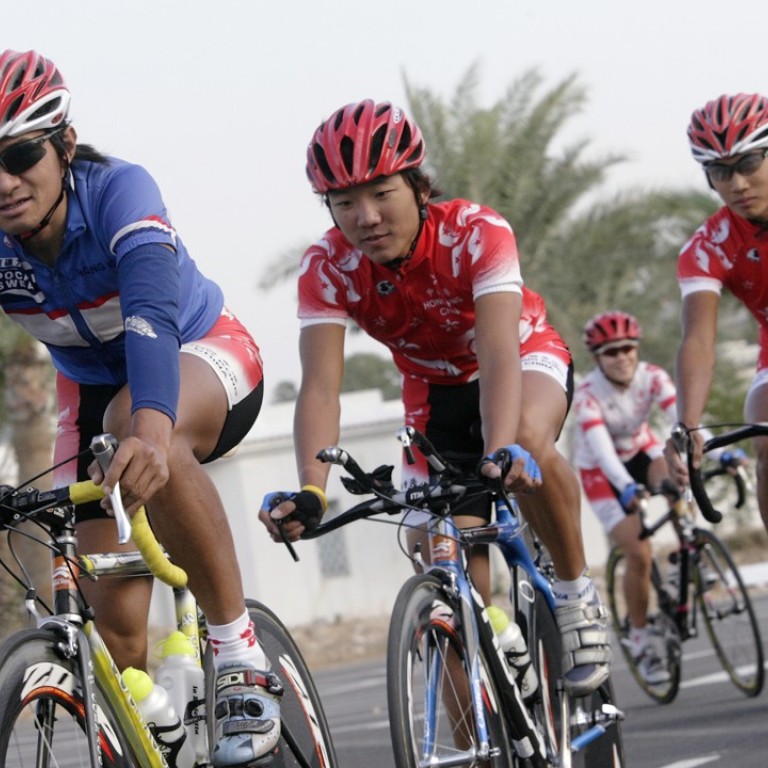
Why Wong Kam-po is still more cherished than Olympic medal-winner Sarah Lee in Hong Kong
- Lee’s bronze medal at the 2012 London Games remains one of just three Olympic medals ever won by a Hong Kong athlete
- Wong’s best Olympic result was 11th place in the points race at the 2000 Olympics
In less than two years’ time, Lee, 31, will be challenging for gold at her third Olympic Games in Tokyo, after snatching a bronze in her debut Games when she came third in the women’s keirin at the 2012 London Olympics.
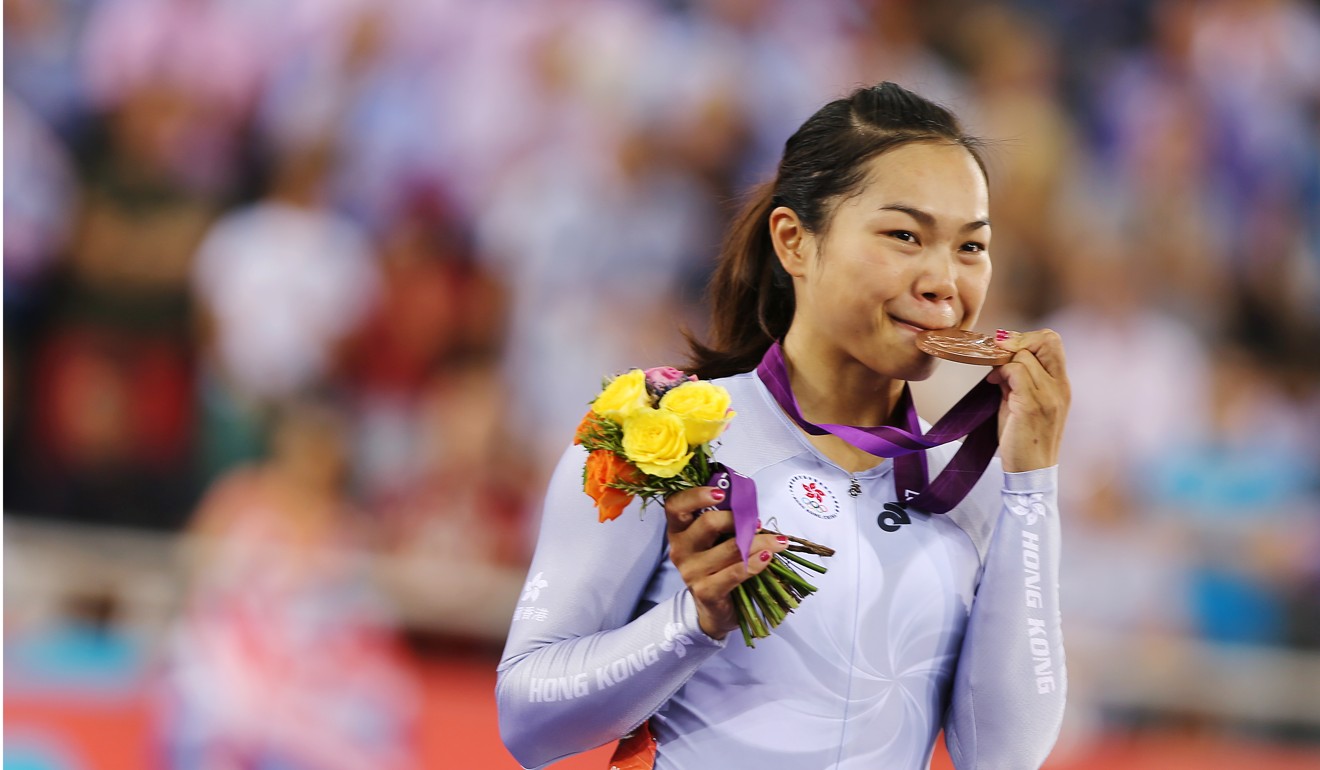
Wong, now 45, made an incredible five Olympic appearances starting at the 1996 Atlanta Games, and it would have been six had it not been for an unsavoury fighting incident that broke out between the Hong Kong cyclists during an overseas training camp in France prior to the Barcelona Games. As a result, the Cycling Association recalled the whole Olympic training squad from Europe, including the then-19-year-old Wong, and banned all of them from the 1992 Olympics.
Over his five Olympic campaigns, Wong’s best finish was 11th place in the men’s points race at the 2000 Sydney Olympics.
At the age of 39, he wrapped up his Olympic legacy with a creditable 37th place in the road race among 144 riders at the 2012 London Olympics.
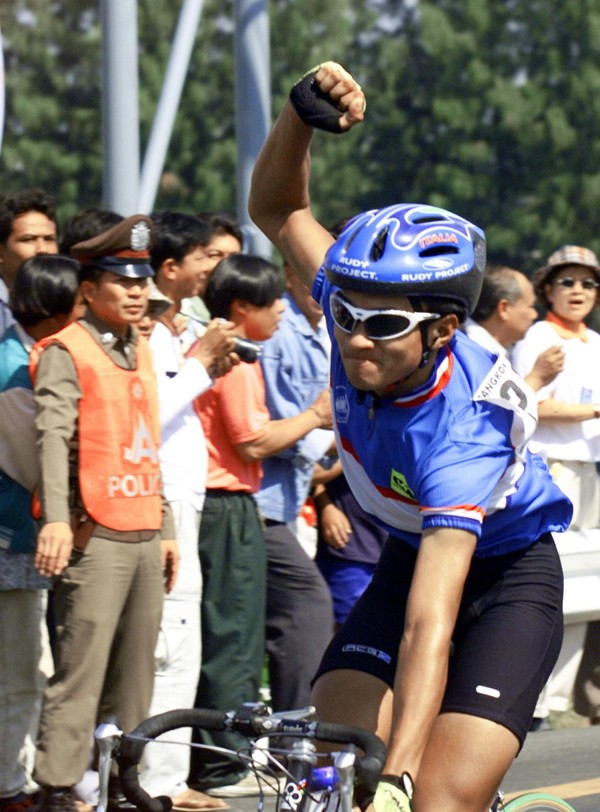
The two riders, both born in the same year, have in fact been riding against each other since their early days. Vinokourov was suddenly handed the opportunity to take part in the 1994 Asian Games after the dissolution of the former Soviet Union and the newcomer, who had been training and competing in Europe previously, had little problem finishing with the silver medal in Hiroshima, Japan as Wong finished just off the podium in fourth place. The champion was another rider from Kazakhstan.
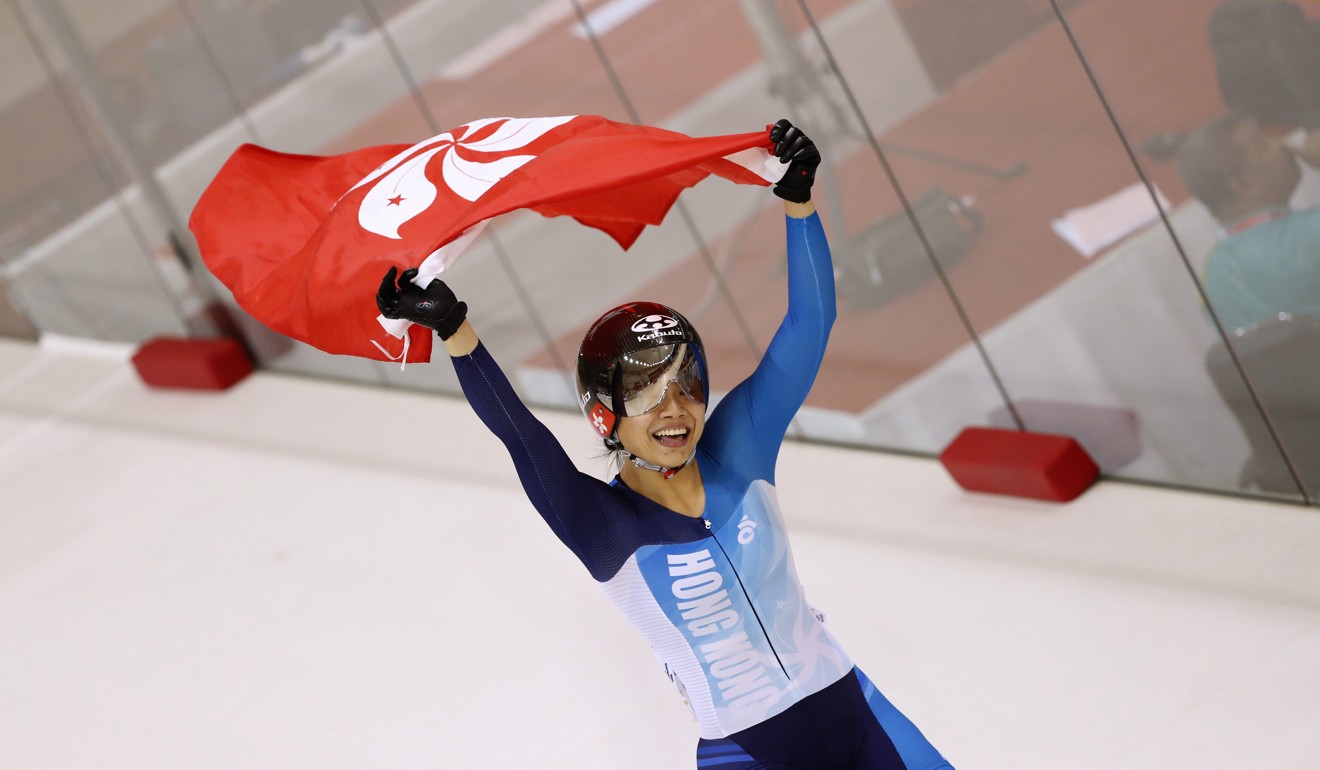
All things considered, Wong is still regarded as one of the greatest male Asian riders with a record three Asian Games road-race gold medals won at Bangkok ’98, Doha ’06 and Guangzhou ’10. Including the bronze medal he won in Busan, Wong bagged four Asian Games road race medals.
While an Olympic medal is the biggest honour for any athlete, Lee has also won more Asian Games gold medals than Wong. She claimed back-to-back women’s sprint and keirin victories on the track at the 2014 Incheon Games, and most recently the 2018 Jakarta Games. Lee was also the 500-metre time trial champion at the 2010 Guangzhou Asian Games.
But why is it that it was Wong – and not Lee – who shared with Lee Lai-shan the honour of “best athlete of Hong Kong over the last 30 years” at the recent Hong Kong Sports Press Association gala dinner.
Perhaps it’s something more than the medal number that counts. Something else that resonates with people on another level maybe?
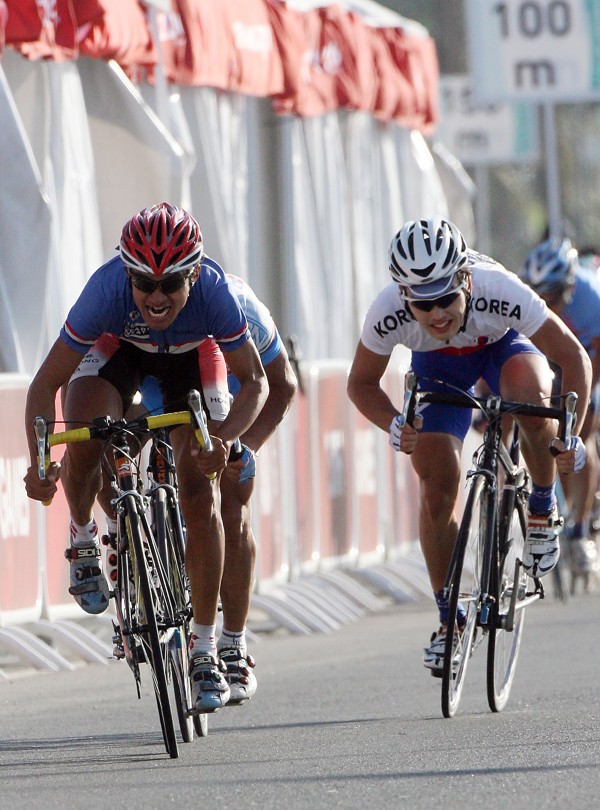
With a long-standing career over a period of more than 20 years beginning at the age of 17 when he became the first cyclist from Hong Kong to win the Asian junior road race championship in 1991, Wong has made himself an icon of Hong Kong sport, a sporting figure that can always represent the city on public occasions.
His humble personality is well known, not only in cycling but in the broader sporting arena also, making Wong a popular figure and a true character among Hong Kong athletes.
Few would have expected that a small city in southern China could produce a cyclist who was so competitive in such a popular sport, reigning glorious at the Asian Games for years and beating the best cyclists from powerhouse nations like China, Japan and South Korea. Wong’s work ethic and approach to training have become his trademark in one of the toughest sporting disciplines, especially road racing, which requires many long hours of training before the physically and mentally demanding races.
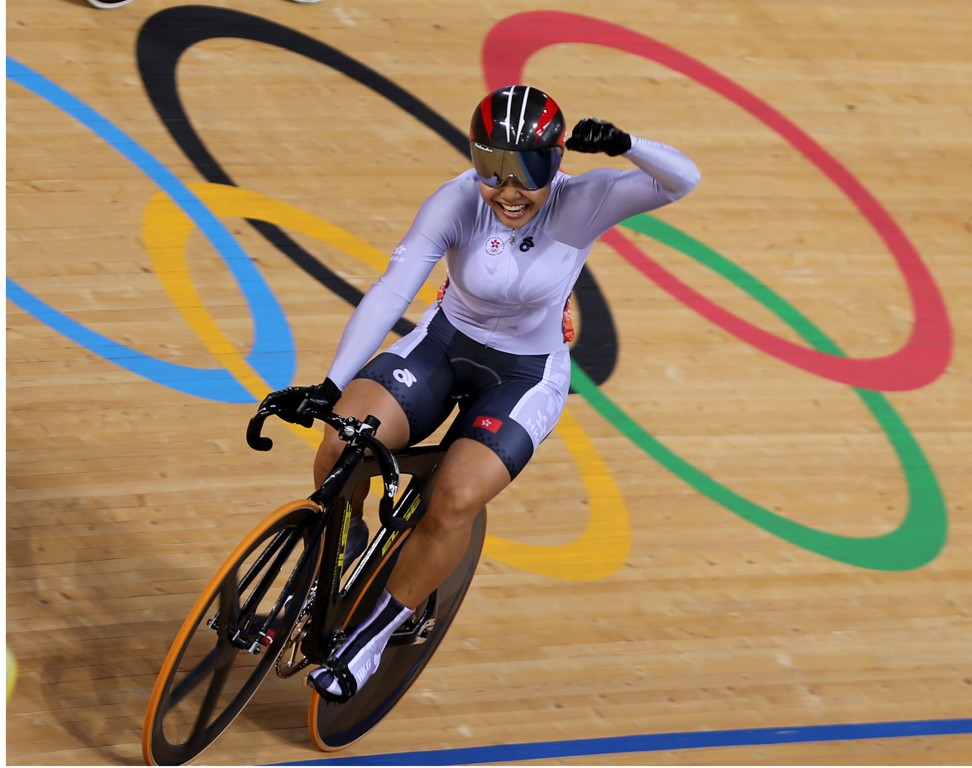
Road racing is considered the true essence of cycling and that’s why the grand tours, led by the Tour de France, are so important in world cycling, and why events on the track still have a long way to go before achieving the same status.
At his peak, Wong was widely considered to be the best road race cyclist in Asia, even if that meant he was still far from being among the world’s best.
Lee was a virtualunknown prior to the 2010 Asian Games. She then won a bronze medal at the 2012 London Games and proved to be a serious medal contender in Rio four years later until her unfortunate crash in the keirin semi-finals that robbed her of a back-to-back medal chance. And if the Sports Press Association celebrates the 40th anniversary in 10 years’ time with another ballot, Lee should have a better chance of being named the pride of Hong Kong, especially if she can bring home another medal from the 2020 Tokyo Games.

